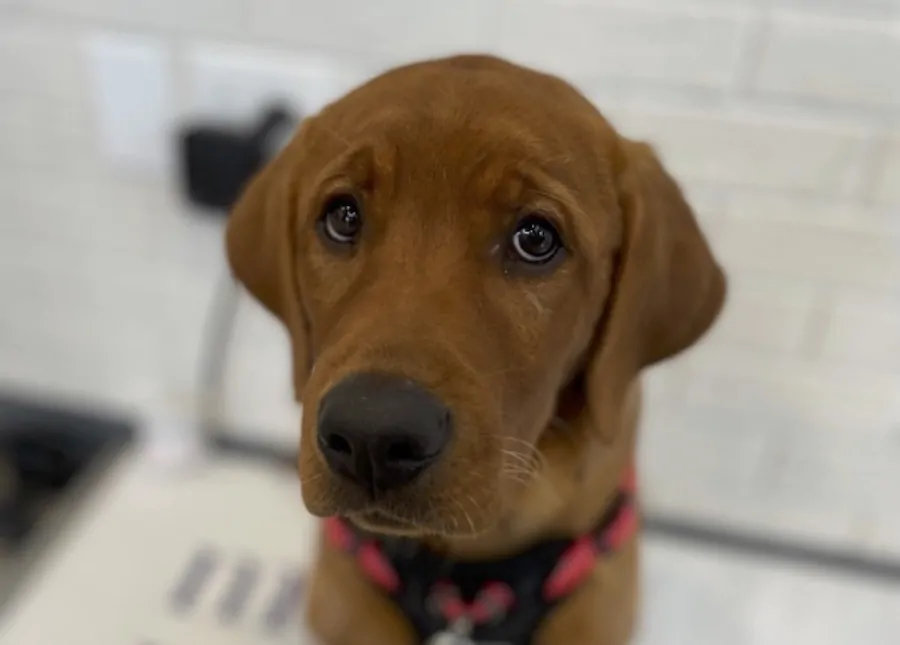Most puppies or kittens we see with Parvo are pets picked up from breeders or shelters – they cargo and transport pets from city to city. Making sure pet owners bring the pet in as soon as possible for an exam to start a vaccination series is key. A lot of pet owners tend to wait because their breeder said they’ve had their vaccinations. Often, breeders may have given a half vaccination dose, or an incorrect one was given.
Canine parvovirus (CPV) and feline panleukopenia virus (FPV) are two important viral illnesses that are caused by viruses in the genus Parvovirus. CPV has been demonstrated to infect and cause disease in both cats and dogs, but FPV has only been proved to impact cats. If a real infection develops, both strains of this infectious virus can be extremely dangerous for pups and kittens, often necessitating hospitalization at a 24-hour facility. While more prevalent in puppies and kittens, CPV and FPV can also infect unvaccinated adult dogs and cats.

Fever, melancholy, and appetite loss are some of the early clinical signs in both dogs and cats. As the illness develops, your pet may experience vomiting and diarrhea, which may become bloody. Young puppies infected with the parvovirus are particularly susceptible to inflammation of the heart.
If your pet is experiencing these symptoms, you should seek veterinary care quickly. Veterinarians have the capability to detect low white blood cell count (leukopenia) in dogs and cats, through the deployment of blood work diagnostics. A parvovirus fecal test will be advised by your veterinarian if your dog or cat displays any of these symptoms.
CPV and FPV are excreted from the gastrointestinal tract after infection in a susceptible pet, showing that feces can spread this virus to other pets. When dogs and cats are infected, shedding can happen before clinical signs appear.
If you suspect your pet has parvo, It is important to keep the pet isolated from other animals at home until their vet check. It's also important to bring a fecal sample to their appointment.
The most vulnerable animals are those cats and dogs who have never had a parvovirus vaccination. Be mindful that some dog breeds are more susceptible to the canine parvovirus. These dogs include Pit bulls, German Shepherds, Rottweilers, and Doberman Pinschers.
Note - Parvovirus protection extends to newborn puppies and kittens if their mother was vaccinated. However, this defense wears off with time. Therefore, it is important to schedule an appointment for parvovirus vaccination.
Correct vaccination of puppies and kittens is crucial for preventing many illnesses. The core recommended vaccinations for both puppies and kittens include the vaccine against canine parvovirus and feline panleukopenia virus (also called feline distemper).
Between the ages of six and sixteen weeks, puppies and kittens undergo several vaccinations. To help prevent the spread, If you have come in contact with an infected animal, please be sure to shower and change your clothes before coming in contact with other pets.
Parvovirus does not have a specific antiviral medication; instead, veterinary care is used to give the patient time to recover from sickness. Intravenous fluid therapy is crucial because the animal dehydrates from vomiting, diarrhea, and loss of appetite. Your vet may also recommend providing the patient with electrolytes, probiotics and anti-vomiting and nausea medications.
To decrease the likelihood that they will come into contact with an infected dog, we urge puppies to stay away from places where dogs congregate, such as dog parks, until they have had all of their vaccinations. In shelters, doggie daycares, and breeding facilities during a parvovirus outbreak, sufficient environmental disinfection with a bleach solution is required. The CPV virus can linger on surfaces like kennels and food and water bowls for up to a year if they are not completely decontaminated.
Phone: (855) 461-8259
Email: [email protected]